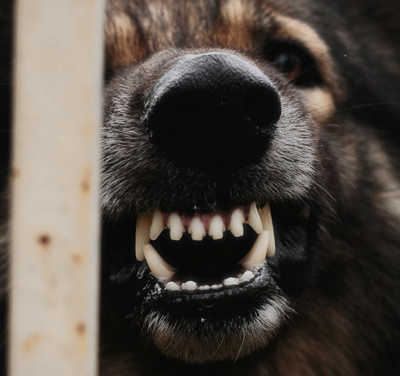Optimizing Canine Behavior: Unveiling the Role of Nutrition
This article explores the link between dog behavior and nutritional imbalances, highlighting how specific nutrients in a dogs diet can impact behavior and discussing common behavioral problems linked to nutrient deficiencies.
Introduction to the Significance of Dog Nutrition and Behavior
Understanding the intricate link between a dog’s diet and its behavior is crucial for pet owners aiming to nurture a well-balanced and happy canine companion. Specific nutrients in a dog’s diet can significantly impact behavior by affecting crucial brain areas responsible for mental health and behavior regulation. For instance, deficiencies in essential nutrients can lead to behavior issues like aggression, anxiety, and picky eating, underscoring the importance of the quality of their diet.
The importance of a holistic approach to caring for dogs becomes evident when considering how closely tied nutrition and behavior are. A well-balanced diet is not just about physical health but is vital for a dog’s overall wellness, including their mental and emotional state. This holistic approach ensures that dogs are not only physically fit but also exhibit desirable behaviors, making their integration into family life smoother and more enjoyable.
The Science Behind Nutrition and Canine Behavior
Nutrition plays a foundational role in influencing a dog’s behavior by impacting cell building, metabolic processes, and the function of the nervous system. Nutrients such as DHA, thiamine, and omega-3 fatty acids are integral in regulating both health and behavior in dogs. These nutrients support brain function and contribute to the normal development of neurons, which in turn influences behavior positively.
Moreover, the gut-brain axis highlights the profound impact of nutrition on a dog’s behavior and cognitive functions. This connection explains how the gastrointestinal system can send signals to the brain, affecting mood and behavior. A diet lacking in essential nutrients can disrupt this communication, leading to behavior issues such as increased stress or anxiety in dogs.
Common Behavioral Problems Linked to Nutritional Imbalances
Nutritional imbalances can manifest in various behavioral problems in dogs, including hyperactivity, anxiety, aggression, and cognitive decline. For example, a deficiency in omega-3 fatty acids, known for their anti-inflammatory properties, can lead to increased aggression or anxiety. Similarly, a diet low in essential vitamins and minerals like vitamins B and D, zinc, and magnesium can contribute to these unwanted behaviors, emphasizing the need for a balanced and nutrient-rich diet.
Improper diets can also lead to disruptive behaviors such as pica, where dogs eat non-food items. This behavior can be linked to nutritional deficiencies, where the body craves substances that might contain the missing nutrients. Ensuring a diet that meets all of a dog’s nutritional needs can help prevent such behaviors.
Signs of Nutrient Imbalance in Dogs
Physical manifestations of nutrient imbalance, such as a dull coat, skin issues, and weight fluctuations, serve as clear indicators of dietary deficiencies. Additionally, changes in behavior – including increased aggression, lethargy, or anxiety – can signal underlying nutrient imbalances. These signs highlight the importance of regular monitoring and evaluation of both a dog’s physical and behavioral health to detect and address nutrient imbalances early.
Creating a Balanced Diet for Optimal Canine Behavior
A balanced diet is crucial for a dog’s overall health, influencing everything from stress levels to unwanted behaviors. Proteins, for example, are essential for muscle regeneration and overall cell function, underscoring the need for high-quality protein sources in a dog’s diet. While carbohydrates provide energy, the debate around the optimal quantity needed in a dog’s diet persists, highlighting the need for balanced nutrient intake.
Fats, particularly essential fatty acids, play a vital role in energy provision, skin health, and hormonal balance. Similarly, vitamins and minerals are crucial for a dog’s growth, development, and overall well-being, making a balanced diet indispensable. Beyond nutrients, factors like water, exercise, and affection are fundamental for maintaining a dog’s overall health and behavior, showcasing the multifaceted nature of canine wellness.
Practical Tips to Address Nutritional Imbalances in Dogs
Addressing nutritional imbalances involves integrating fresh, whole foods and targeted supplementation to optimize canine nutrition and support behavioral health. Consulting with a veterinary nutritionist is crucial to ensure that dietary changes are safe, balanced, and tailored to a dog’s individual needs, especially when considering homemade diets that may lack essential nutrients.
Off Leash K9 Training of Charlottesville: A Solution to Behavior Issues
Off Leash K9 Training of Charlottesville offers an integrated approach to addressing behavior issues by combining dietary adjustments with expert obedience training. Their training techniques, developed by handlers with diverse backgrounds, including military and veterinary experience, are designed to work for dogs of all breeds, sizes, and ages. This comprehensive approach ensures that dogs not only receive the nutritional support they need but also the behavioral training necessary to thrive in any environment.
Conclusion: Encouraging a Holistic Approach to Canine Wellness
Understanding and addressing the link between dog nutrition and behavior is paramount for a dog’s overall well-being. By exploring a comprehensive approach that combines nutritional adjustments with professional training from Off Leash K9 Training of Charlottesville, pet owners can significantly improve their canine companion’s behavior and quality of life. Visit Off Leash K9 Training of Charlottesville’s website to discover more about their services and how they can help enhance your dog’s behavior and overall wellness.











